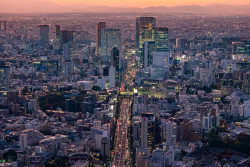
May 10, 2013
Literary Landscapes
8 Japan-related English books for your summer reading list
By Metropolis
Originally published on metropolis.co.jp on May 2013
FICTION

Citadel In Spring
A Novel of Youth Spent at War
By Hiroyuki Agawa; translated by Lawrence Rogers
An autobiographical novel published by Hiroyuki Agawa in 1949, this translation gives you access to “a surprising historical document as well as a moving account of the cost of militarism and defeat” (The New Yorker). Writer Agawa tells in this fictionalized memoir of his induction into the Imperial Navy, his work as a code-breaker in China, and the effects of Japan’s final capitulation.
Kurodahan Press, 2013, 241pp, buy on Amazon, buy for Kindle)

Killing Daniel
By Sarah Dobbs
English writer Dobbs’ first novel is set in England and Tokyo, and follows the separate adult lives of an English and Japanese woman connected by a childhood friendship with a murdered deaf boy. Described as a “cross-cultural literary thriller,” Killing Daniel was launched last autumn at the Unthank Literary Festival in Norwich.
Unthank Books, 2012, 306pp, buy on Amazon, buy for Kindle

Milligan and the Samurai Rebels
By Simon Alexander Collier
At a time of upheaval when the Japanese market has just been opened up to foreign commerce, a young British diplomat named Milligan plies his trade while battling a weakness for women and booze. Collier, a former British diplomat in Japan, wrote this rambunctious historical novel from his home in Tokyo where he continues to reside.
Createspace, 2012, 337pp, buy from Amazon, buy for Kindle

One Hundred Years of Vicissitude
By Andrez Bergen
The narrator, who “suspects he’s a dead man,” undertakes a sake-soaked purgatorial tour through 20th-century Japanese history with a ghostly geisha and a corrupt millionaire. This is the second novel by Melbourne-born Bergen, who is also a journalist, photographer, musician, and DJ.
Perfect Edge Books, 2012, 254pp, buy from Amazon

The 89th Temple
By Charlie Canning
Seven juvenile offenders walk the pilgrim’s route of 88 temples in Shikoku as they consider their future place in society. Billed as “The Seven Samurai meets The Fugitive for young adults,” this is the debut novel of Canning, who taught English for ten years in Japan before enrolling in the creative writing PhD program at the University of Adelaide.
Outskirts Press, 2012, 205pp, buy on Amazon, buy for Kindle

Yamato
By Andrew Clare
Tokyo, 1953. Lieutenant Harvey Brice of US intelligence is found with a bullet in his head, and his discovery promises anything but a routine case for CIA agent Ralph Carnaby. This noir thriller takes in crime and conspiracy during the US occupation in an alternative-history imagining akin to Robert Harris’ Fatherland. Author Clare is a former Royal Marine and works at an international law firm in Tokyo.
Kurodahan Press, 2013, 314pp, buy on Amazon
NONFICTION

After the Great East Japan Earthquake
Political and Policy Change in Post-Fukushima Japan
Edited by Dominic Al-Badri and Gijs Berends
The co-editors both worked for the EU Delegation to Japan at the time of the 3/11 disasters, and brought together this collection of essays to explore shifts in Japanese politics and policy making two years on. Published by the Nordic Institute of Asian Studies in Copehagen, the book’s contributors include policy experts and Tokyo diplomats.
NIAS Press, 2013, 192pp, buy on Amazon

Taiko Boom: Japanese Drumming in Place and Motion
By Shawn Bender
With Japanese taiko drumming now popular around the world, cultural anthropologist Bender looks at the percussive art’s origins in post-war Japan. He explores the activity as a new way for Japanese people to associate communally and observes how practices cast light on national conceptions of race, gender and the body.
University of California Press, 2012, 259pp, buy on Amazon, buy for Kindle







